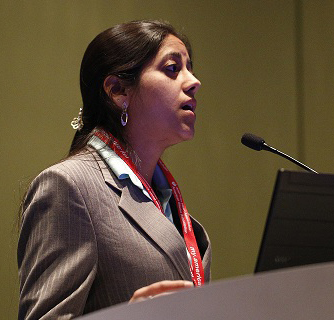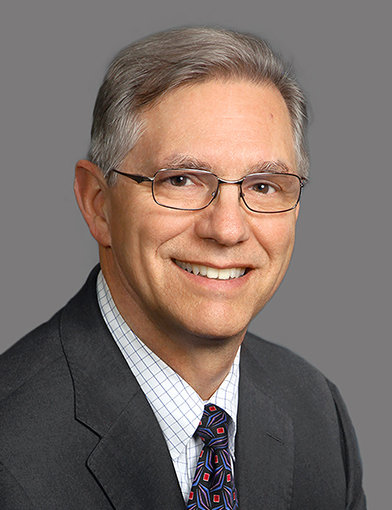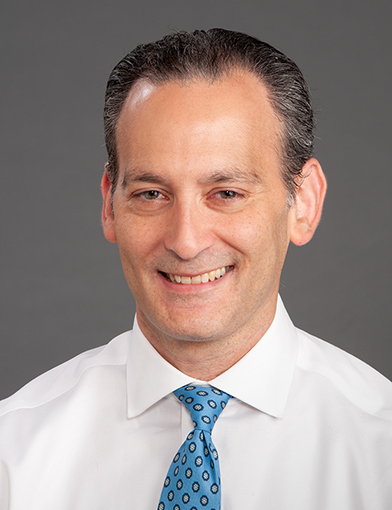The Cardiovascular Research Fellowship program provides fellows with a two-year research-only fellowship, or a four-year combined clinical and research training program with the Cardiovascular Medicine Fellowship program. This program includes a master's degree in Translational Health System Science (THSS)
Research Mentorship
Learn more about how research mentorship plays a large roll in the Cardiovascular Fellowship program here at Wake ForestDavid Herrington
Here at Wake Forest, we are especially interested in training our fellows to not only be users of new knowledge, but creators of new knowledge. We recognize how critically important it is to train the next generation of cardiologists that will help discover the new therapies and the new strategies for treatment and prevention. That's the only way we're going to continue to be better at providing the care and preventing the cardiovascular disease that we're so committed to trying to treat and prevent.
Michael D. Shapiro
There's many facets of our research training program that are unique. For one, all of our research trainees matriculate into a master's program that's in translational health system science. And there they'll gain all of the foundational and theoretical knowledge in epidemiology, biostatistics, clinical trial design, grant writing, research ethics. And by the time they're finished with this program, they'll feel very comfortable designing studies and doing their own analysis. At the same time, from a very practical standpoint, all of the trainees will be doing their own research projects. This culminates in a capstone project that they actually have to defend in front of a committee. When you put these two together, the theoretical training as well as the practical training, fellows feel very comfortable by the time they've finished the research program to independently do their own research studies.
Arjun Aggarwal
In the T32 program, I found myself in an environment that was very nurturing to my growth, not just professionally, but also personally. I find a lot of great support from my mentors in all aspects of my academic and career aspirations. Moreover, the program's culture and structure really promoted interdisciplinary conversations and connections with people across the field of medicine to really help achieve the research goals that I have in mind.
Charles German
I am lucky to have mentors both in the School of Medicine, the School of Public Health Sciences, as well as the undergraduate campus. And so within all three centers in Wake Forest, I always have somebody that I can go to for whatever sort of question that I have.
Matthew Singleton
The ability to go from having an idea to running your own statistical analysis, writing the paper, getting it out to your co-authors, all within 48 hours is really something that we're able to do here because of the collaboration and the close network we have between the cardiologists, the cardiovascular, the statisticians. So, we're able to be really productive and publish high impact research. That is an opportunity that you'll have as a fellow, even first author, major publications.
Giselle C. Melendez
All our mentors are really invested in shaping the new generation of physician scientist. What is this physician scientist or what is this clinician? It's a person that knows that science informs medicine and informs new knowledge. But it's also the perimeters or the limitations of our clinical capabilities that is going to create these pressing questions that need to be taken back and conduct research on to create new answers. And that combination of curiosity and hunger from new knowledge is what's really needed and what we can offer here through our program.
Saeid Mirzai
Alongside our coursework, we participate in weekly trial clinics as sub investigators in many of the current high profile lipid lowering clinical trials, giving us invaluable behind the scenes experiences at the workings of clinical trials. And giving us hands-on experience on the concepts we learn in class. And for those who wish to pursue new projects and require funding. Wake Forest offers a variety of early career focused internal funding opportunities that are consistently shared with us by the graduate school and cardiology department.
Jeffrey Kingsley
The T32 program has been vital towards my success, particularly with networking within the field of cardiology. I was able to connect with multiple leaders here for both epidemiology research as well as EKG research. These are leaders that have had almost a couple of hundred publications, as high as up to 500 publications. It really provides a very diverse perspective and strengthens the overall field of research, both for myself as well as the people I was able to collaborate with.
Elsayed Z. Soliman
One of the several unique resources accessible to fellows who join Wake Forest Research program is the Epidemiological Cardiology Research Center, or EPICARE. The global outreach of EPICARE exposes fellows to mentor and experts from all over the world, not only from the United States. This prepares them to be potentially the world leaders in the cardiovascular medicine when the time comes to their graduation.
Oguz Akbilgic
I think our research program is very well integrated with AI researchers. This gives our fellows access to people who are doing AI. AI is going to be part of how we care for our patients. We all should be in a level that we understand AI, how to interpret the results so that we can provide better care for our patients.
Carolyn Park
The skills that you learn from this program will not only serve you for research, but also as a clinician and cardiology, given that how much of our work is so based on understanding research and outcomes. Even if you go through the T32 program and you decide that you'd wanted to do more of a clinical approach rather than to pursue a full-time academic role, this program and especially the clinical faculty here will support you in that as well.
Giselle C. Melendez
This is a unique opportunity for a fellow to join a research program. This is an era where the advances in medicines, the technologies available are at its peak. And this is a very exciting time to be conducting research. If you want to have the finger of the pulse of medical advances, this is an exciting time to come to Wake Forest.
Since 2003, this program has successfully supported 45 clinical investigators-in-training, including 17(38%) women or individuals belonging to under-represented minority groups. Of the 37 clinician-scientist trainees who have completed both their research and additional clinical training, a majority, 24(65%), currently hold faculty positions in academic medical centers (e.g. University of Chicago, Cleveland Clinic, University of Alabama, Wake Forest University, etc.), or research and leadership positions in large private healthcare systems, foundations and industry including Intermountain Health, the Lindner Research Center, and Labcorp Drug Development. Many trainees from this program have gone on to pursue extramurally funded programs of research, received awards and honors for their research contributions, and assumed positions of leadership within their institutions and in professional societies devoted to promoting cardiovascular research. Collectively, since initial appointment in our training program, our trainees have published 573 manuscripts, including 227 as first author.

These manuscripts have been cited >13,000 times, and 35 publications are in the top 90th percentile of citations for all NIH funded manuscripts from the same field and year of publication based on NIH–iCite metrics (Fig. 1). This track record underscores the effectiveness of our program to develop skilled clinical researchers who are continuing to make significant contributions to cardiovascular research.
The master's curriculum provides formal training in Epidemiology and Biostatistics while providing tuition for the THSS program, along with a stipend. The program's training focuses in a variety of additional domains including Molecular epidemiology, Clinical informatics, Health system research and Pragmatic trials. In addition, other topics of relevance include joint mentorship with both clinical and basic science faculty in the chosen area of interest and participation in external NHLBI-sponsored short courses in cardiovascular epidemiology.
Program Goals and Objectives

Our educational goals and objectives include:
- Provide training in conceptual/theoretical frameworks, research methodologies and statistical methods essential to the design and conduct of clinical and epidemiologic research
- Provide training in a focused set of additional skills in a chosen area of emphasis relevant for a career as a clinical cardiovascular investigator
- Provide training in the basic skills of grant and manuscript preparation
Students will be required to design a thesis project of publishable quality that is closely aligned with their interests and career objectives. Students will work closely with a pair of program faculty mentors to design an individualized program of study.


